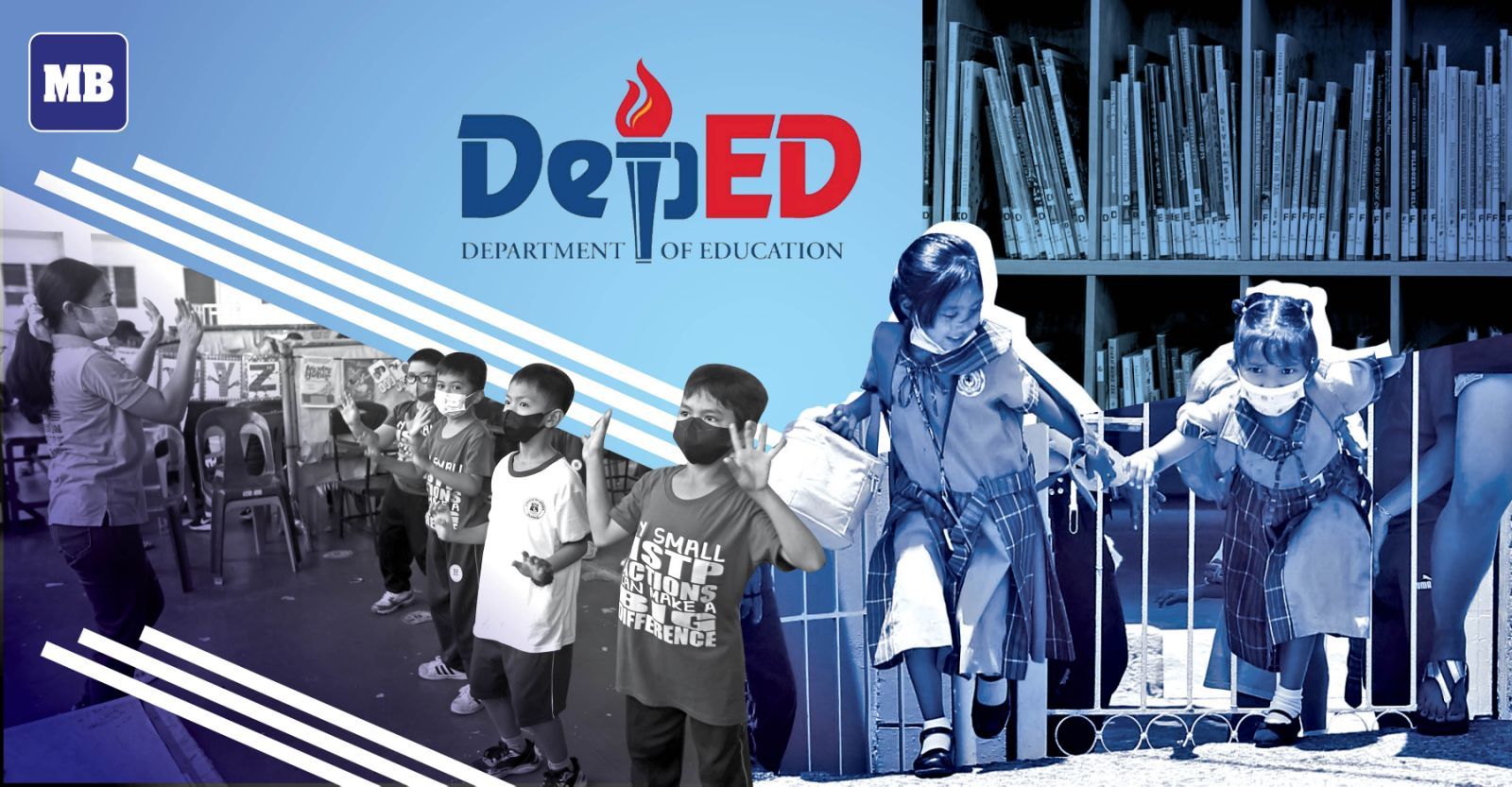2024 in review: DepEd's journey toward transforming Philippine education
As 2024 comes to a close, the Department of Education (DepEd) reflects on a year filled with challenges and achievements in shaping the future of education in the country.

From ongoing adjustments in the K to 12 program to significant strides in digital learning and teacher welfare, DepEd highlighted its efforts to address the evolving needs of students and teachers.
During the 2024 Education Week at the Baler Convention Center in Aurora, DepEd Secretary Sonny Angara urged education stakeholders to collaborate on transformative reforms that empower Filipino learners.
Angara stressed that “transformative education is not just the act of teaching” and emphasized that “it is creating a culture—a culture that fosters growth, collaboration, and empowerment among educators and learners.”
In July, Angara took the helm at DepEd after Vice President Sara Duterte tendered her resignation as education secretary.
Major accomplishments
DepEd shared with the Manila Bulletin its key achievements in learning outcomes, curriculum development, and teacher and student welfare in 2024.
Among the key accomplishments in learning outcomes was the implementation of the rules and regulations for the Academic Recovery and Accessible Learning (ARAL) Program, aimed at addressing learning losses from the pandemic.
“This initiative seeks to help struggling learners meet grade-level competencies and improve overall learning outcomes,” DepEd stated.
DepEd also highlighted initiatives focused on foundational skills, including partnerships with organizations such as Khan Academy and iamtheCODE, aimed at promoting digital education and enhancing numeracy and literacy skills.
In terms of curriculum, DepEd noted progress in streamlining the Senior High School (SHS) curriculum this year.
“The SHS curriculum is undergoing a review to eliminate unnecessary subjects and emphasize work immersion,” DepEd said. “This approach is designed to provide students with essential 21st-century skills, preparing them for future employment,” it added.
DepEd also emphasized the development of a “more flexible” K to 12 curriculum, granting schools the flexibility to tailor the curriculum to their specific needs, ensuring more effective and efficient learning time for students.
For the welfare of teachers and students, DepEd implemented an expanded career progression system for public school teachers, ensuring better career growth opportunities.
Additionally, DepEd highlighted increased allowances for teachers, extended vacation service credits, reduced administrative burdens, and enhanced healthcare benefits.
For students, DepEd extended the School-Based Feeding Program, launched “Bakuna Eskwela,” distributed learning materials and sports equipment, provided digital tools for learning, and supported mental health through the signing of the Basic Education Mental Health and Well-Being Promotion Act.
Challenges
Despite its key accomplishments, DepEd acknowledged several challenges faced throughout the year and the ways they were addressed.
Among these challenges were procurement issues and ensuring learning continuity amid class disruptions caused by disasters and calamities.
To address procurement delays that hindered budget utilization, DepEd initiated early procurement activities (EPA). “We also implemented strict adherence to the National Government Procurement Reform Act to ensure a fair and transparent bidding process,” it added.
“Through a DepEd order, we have adopted a zero-tolerance policy for bid manipulation and are prepared to take legal action against any violators,” DepEd said. “Additionally, we launched the online platform Walang Korapsyon sa DepEd, which enables stakeholders to report procurement irregularities,” it explained.
DepEd also faced challenges in maintaining education during class disruptions caused by disasters and calamities. To ensure continuity, DepEd began the pilot implementation of the Dynamic Learning Program (DLP) in schools affected by recent typhoons.
This initiative, DepEd said, aligns with President Marcos’ directive to implement proactive measures during emergencies.
DepEd also signed a memorandum of agreement with the Public-Private Partnerships Center to address the shortage of classrooms and school buildings, a situation exacerbated by natural disasters.
Notable reforms
Under Angara’s leadership, DepEd’s reforms are guided by its 5-Point Agenda, a strategic framework designed to address key education challenges.
“It emphasizes creating a conducive learning environment, prioritizing teacher and learner welfare, and ensuring efficient education delivery while preparing students for future workforce demands,” DepEd stated.
“This agenda is driven by partnerships with stakeholders from both public and private sectors, symbolizing collaborative efforts toward national education reform,” it added.
The 5-Point Agenda includes strengthening SHS programs, focusing on teacher development and welfare, advancing digitalization in education, developing infrastructure, and improving education quality and inclusivity.
2025 priorities
For next year, DepEd’s priorities include investing in teacher quality, protecting learners' well-being, decentralizing governance, raising education quality, preparing graduates for future success, and improving assessment scores.
To address long-standing challenges in basic education, DepEd said it is actively exploring public-private partnerships (PPPs) and has initiated early procurement activities (EPAs).
“We also welcomed and signed new partnerships to address the perennial issues in basic education,” DepEd said. “These efforts are expected to reduce classroom backlogs, expedite infrastructure projects, and fast-track the delivery of essential goods, including textbooks and digital tools,” it added.
DepEd expressed confidence in the success of its initiatives, with continued support from President Marcos and numerous collaborations with other organizations.
“We look forward to expanding these partnerships to improve educational services and meet the needs of learners and personnel,” DepEd said.